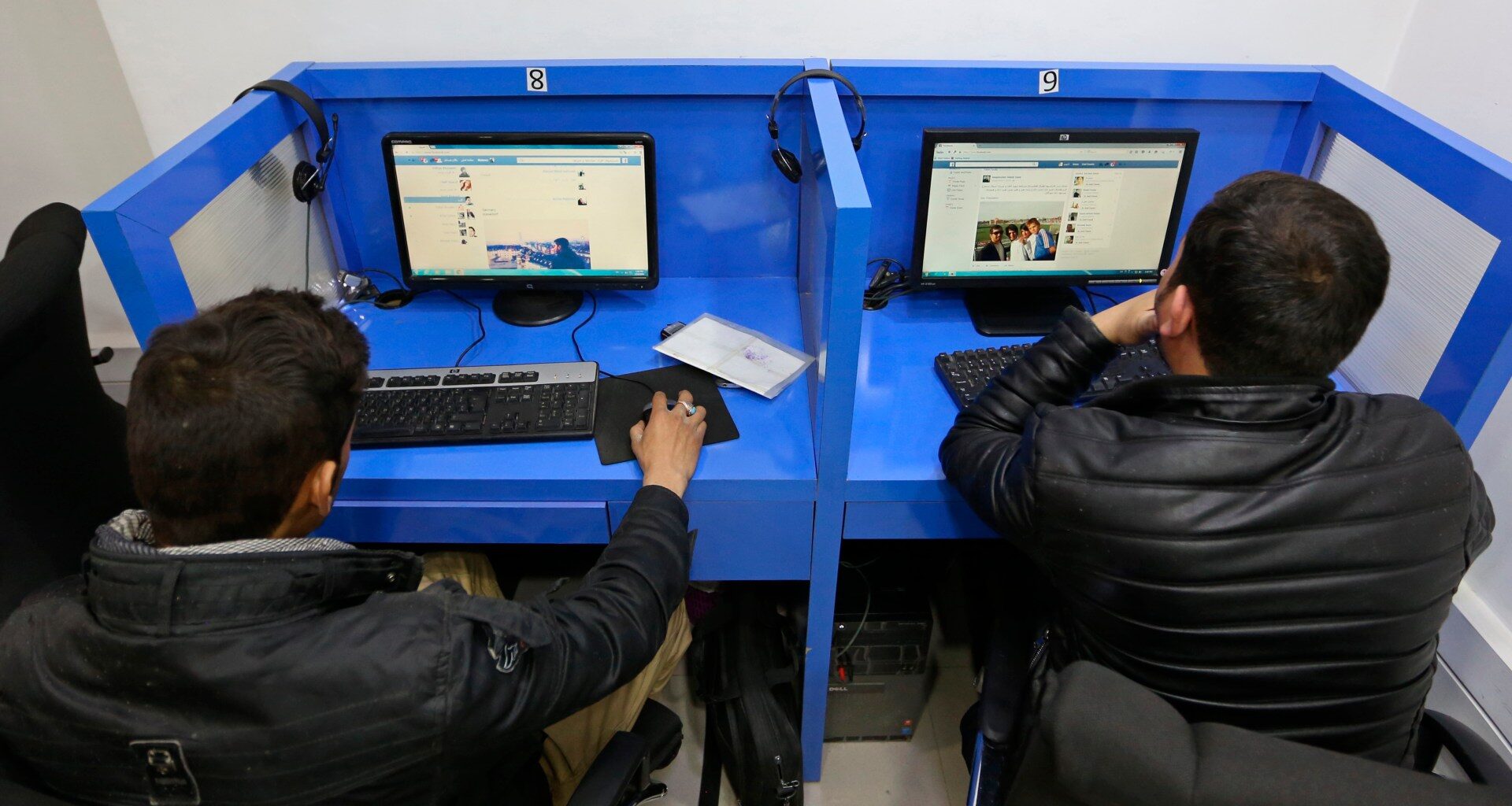When I was a child, Afghans had to travel to Pakistan whenever they needed to make a phone call to their relatives outside the country. Today, we face the real possibility that we may also be forced to travel to a neighbouring country just to use the internet.
Last week, fibre-optic internet services were stopped in several provinces, including Kandahar, Helmand and Balkh – a move that may extend to the entire country. Afghanistan may be cut off from the rest of the world if the Taliban leadership does not reconsider its policy.
Soon, you may no longer read my stories and those of millions of Afghans because we may not be able to connect to the internet. A total silence would prevail in the country.
After the shutdown of fibre-optic internet in Balkh province, Haji Zaid, a spokesperson for the Balkh provincial government, said on X that the ban was a direct order from Taliban leader Haibatullah Akhunzada to prevent “vice”.
However, many reacted negatively to his post, arguing that a proper alternative had to be introduced before the implementation of this policy.
A nationwide cutoff of internet access would affect Afghan citizens in many ways. Business activities and banking systems would be immediately disrupted. The opportunities for online learning and scholarships would be lost. Many national and international organisations, NGOs and e-government services would encounter serious challenges, and online workers would lose their jobs. Communications with the world would be cut off.
My family would also suffer. As someone who has struggled with unemployment for a few years now, I have found on the internet various opportunities to earn some kind of income, including launching a YouTube channel to showcase beautiful parts of my country. More importantly, if it was not for a good internet connection, we would struggle to keep in touch with family who now live abroad and who we are unlikely to see for years.
Shutting down the internet would marginalise Afghanistan at the global level. It would be like implementing a self-imposed embargo on the country, which would have an adverse effect on many public spheres in Afghanistan, especially the already struggling economy.
Instead of going to this extreme, Afghanistan should heed the example of China. It should be noted that China, as the world’s second largest economy, owes its economic development to reform and a policy of opening-up, adopted by Deng Xiaoping in 1978. This agenda transformed China from a poor country into a manufacturing giant.
When internet use spread across the country in the 2000s, the authorities in Beijing saw some risks. But instead of cutting off their country from being connected to the rest of the world and reversing the policy of openness, they instead invested in building home-grown internet infrastructure and filters. Thus, internet content that is considered risky is filtered out without the need to largely shut off 1.4 billion Chinese citizens from the rest of the world.
In Afghanistan, videos considered immoral are already censored, preventing citizens from accessing such content. If the government is concerned that these filters are failing, there is certainly a technological solution to make them more effective. It should also be recognised that shutting down the internet for everyone will not prevent “immorality” in real life.
If the aim of the policy is to pressure the international community for formal recognition, this will not work either. It would simply harm the Afghan people rather than effectively move other countries to change their policy on Afghanistan.
The internet is now an essential part of daily life, comparable to fundamental needs such as food and water. After two decades of being a netizen, living the life of my forefathers – being cut off from the rest of the world in the era of technological innovations and AI – seems scary to me.
While writing this piece, I have had to check my internet connection every few minutes, worried that I would lose access before I could send it. I am terrified to imagine living like in the old days when listening to the radio was the only way to get information about what was going on in Afghanistan and the rest of the world.
Our stories matter, and we want the world to listen to us and to support us in times of hardship. A marginalised, disconnected and poverty-stricken Afghanistan is in the interests of no one. Afghans want to remain part of the global community and interact with the rest of the world, not be forced into full isolation.
The views expressed in this article are the author’s own and do not necessarily reflect Al Jazeera’s editorial stance.

